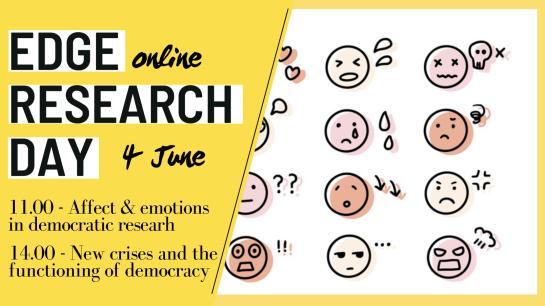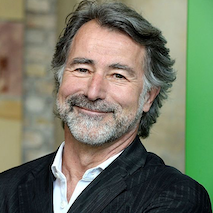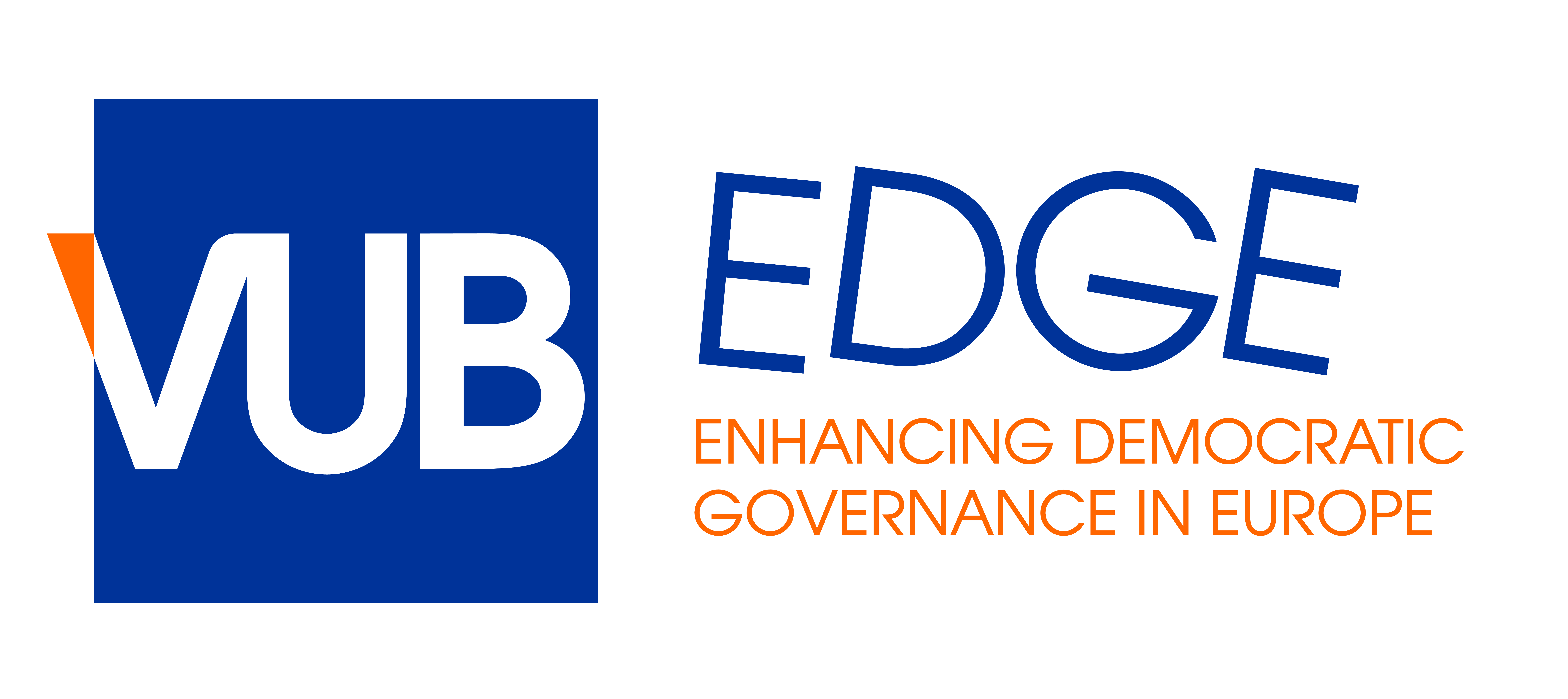The EDGE Day 2021 adapts to the COVID related uncertainty by switching to a full online mode, yet without losing the spirit of the previous editions: to brainstorm on the main challenges of democratic research in a participative and dynamic manner.
DO NOT MISS this opportunity to interact with colleagues and explore new advents for democratic research. Check the programme below and register for the keynotes.

PROGRAMME
11.00 - 13.00The importance of affect in research about democracy.by prof. dr. Tereza Capelos (University of Birmingham) |
|
|
From Brexit and the yellow vests movements, to the riots at Capitol Hill, the importance of emotions in social and political life has never been so apparent. What do we know, and need to know about the interaction between affect and democracy? Prof. dr. Tereza Capelos will argue that emotions are key to interpreting the growth of extremism and nationalism, as well as in shaping and mediating human relationships. Through the concept of 'resentful affectivity', she will explain how complex affects like resentment and ressentiment can inform different patterns of engagement with politics and also guide illegal and violent political action. |

|
REGISTER HERE |
13.00 - 14.00Lunch breaklet's share a coffee in a virtual room! |

|
14.00 - 16.00New types of political crises and the transformation of democracy.by prof. dr. Wolfgang Merkel (WZB, Berlin) |
|
|
The world is currently changing and poses new threats to social and political life. What are the new challenges to democracy? What is the road ahead in a post-pandemic world? Prof. dr. Wolfgang Merkel will reflect on how disruptive are global change, migration and public health major problems such as COVID for contemporary democracies. He will reflect on how current political crises are characterised by scientification, moralization and polarization. Based on the report "Past, present and future of democracy" that he authored in 2019, he will take stock of European research on democracy and its future perspectives. |

© David Ausserhofer, WZB |
REGISTER HERE |
BIOS
Tereza Capelos is Associate Professor in Political Psychology, Director of the Institute for Conflict Cooperation and Security, Director for the MSc Political Psychology of International Relations and the MSc Global Cooperation and Security, and President Elect of the International Society of Political Psychology (ISPP).
Her research focuses on the affective, cognitive and motivational determinants of political judgments. She is particularly interested in the role of emotions and values on political radicalization and tolerance, the formation and updating of institutional and individual reputations and the role of trust and confidence on political accountability attributions.
Wolfgang Merkel is Professor Emeritus at the Social Science Research Centre Berlin (WZB) and Professor of Political Science at the Humboldt University Berlin. He is a member of a number of key bodies, including the prestigious Berlin-Brandenburg Academy of Sciences and Humanities. He is also a non-party member of the Basic Values Commission of the Executive Committee of the German Social Democratic Party (SPD).
His recent book publications include. The Struggle over borders. Cosmopolitanism and Communitarianism (ed. 2019 Cambridge University Press; with de Wilde, Koopmans, Merkel, Strijbis, Zürn); Democracy and Crisis. Challenges in Turbulent Times (ed., 2018 with Sascha Kneip, Springer); Handbook of Political, Social, and Economic Transformation (ed. with Raij Kollmorgen and Hans-Jürgen Wagener 2018 Oxford University Press); The Future of Representative Democracy (2011, Cambridge University Press, together with Sonia Alonso and John Keane.
